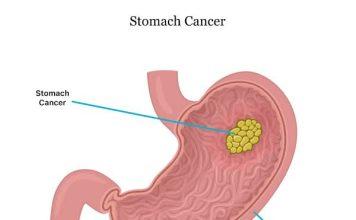Stomach cancer is a serious and often fatal disease, and the key to increasing survival rates lies in early detection and treatment.
While the exact cause of stomach cancer is not known, certain lifestyle choices can heighten the risk of developing this aggressive cancer.
One major dietary factor that is linked to stomach cancer is the excessive consumption of salty and preserved foods. High levels of salt can harm the stomach lining, leading to inflammation and a higher likelihood of cancer.
Additionally, processed and preserved foods contain nitrates and nitrites, which can combine with stomach acid to form carcinogenic compounds.
Red and processed meats also play a role in increasing the risk of stomach cancer. Compounds like heterocyclic amines and polycyclic aromatic hydrocarbons, formed during cooking or curing processes, have been linked to an elevated risk of stomach cancer.
Furthermore, excessive alcohol consumption is another factor associated with a greater likelihood of developing stomach cancer. Alcohol can irritate the stomach lining, causing inflammation and potentially harming DNA, which can lead to the development of cancer.
To reduce the risk of stomach cancer and promote overall well-being, it is recommended to limit the intake of salty and preserved foods, red and processed meats, and alcohol.
Instead, focus on a balanced diet that includes plenty of fruits, vegetables, whole grains, and lean proteins, along with regular exercise and staying away from tobacco products.
Routine screenings and seeking medical help promptly for any worrisome symptoms can aid in early detection and treatment, potentially improving outcomes for those at risk of stomach Cancer.
